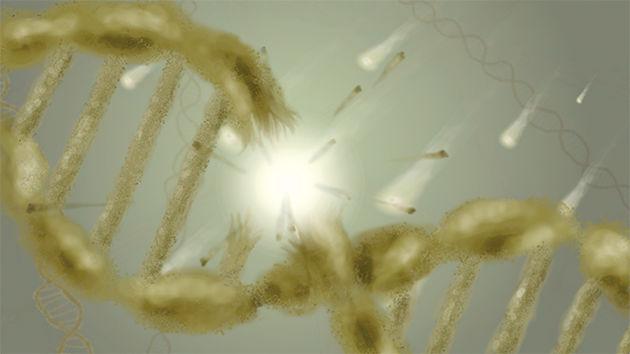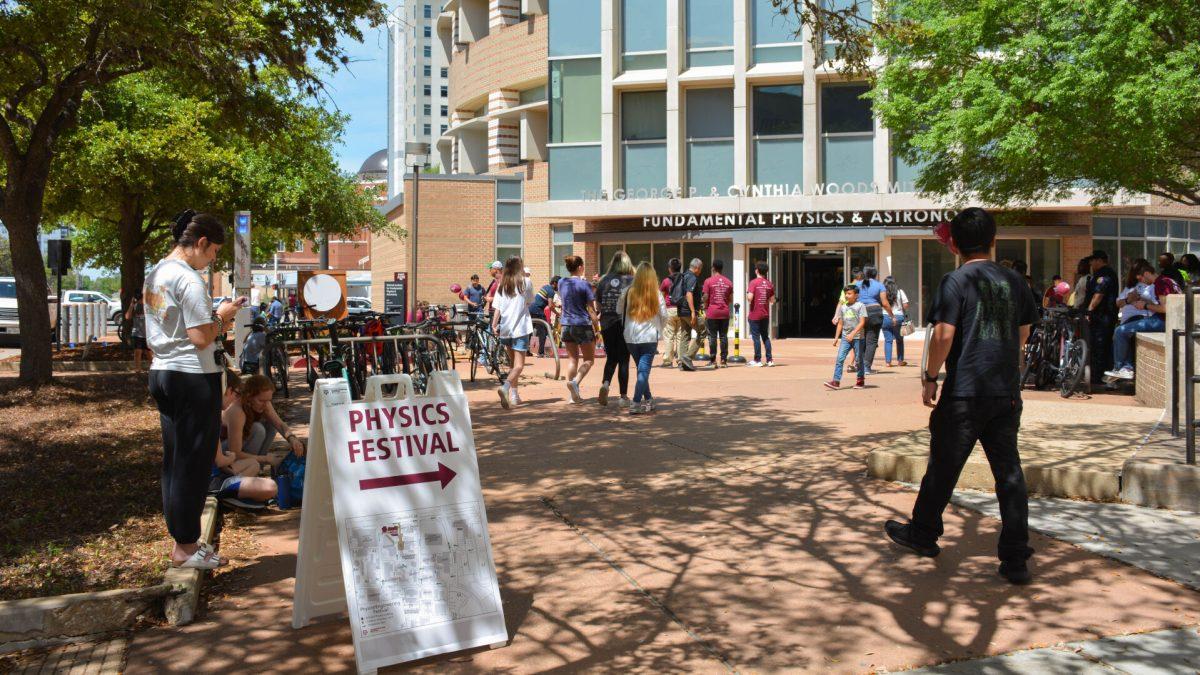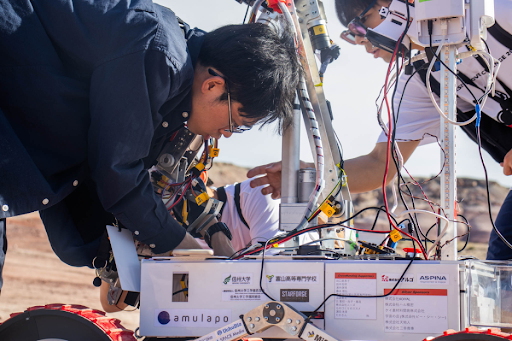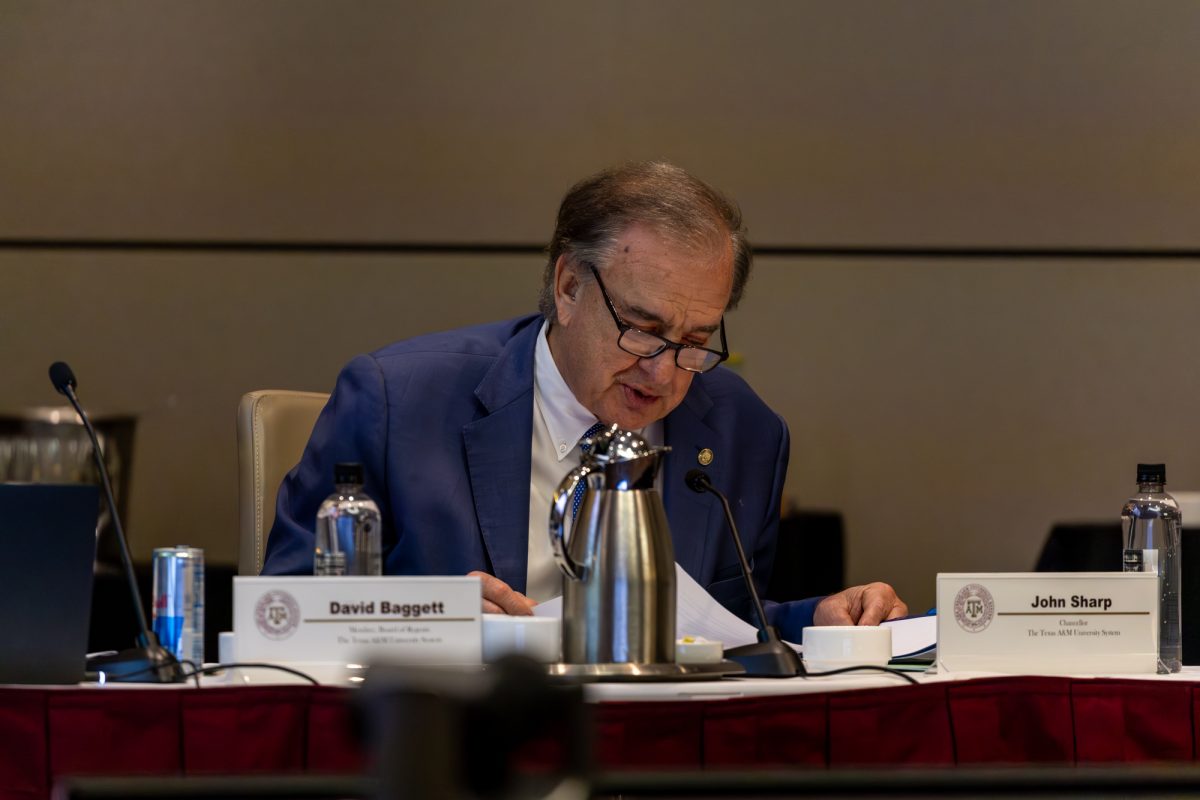According to the Centers for Disease Control and Prevention, cancer is the second leading cause of death in the United States — but a little dietary adjustment could go a long way toward lowering that number.
Astronauts on future deep-space missions, under constant bombardment by solar radiation, will face a familiar disease — cancer. Although shielding against radiation is a possibility, such a shield would have to consist of heavy and bulky materials, which are not ideal to launch into space. But a team of A&M researchers has partnered with NASA to find an alternative way to protect astronauts from cancer — nutrition.
John Ford, team member and professor of nuclear engineering, works with Nancy Turner, Class of 1978 and research professor, to study how adding certain chemicals to a diet can help repair DNA damaged by exposure to radiation. The team is conducting its research using mice. Turner is the lead researcher on the project, while Ford’s primary focus is radiation biology.
“One of the things we’re doing is we’re looking at cells in the intestine of mice,” Ford said. “If they’re irradiated with something, that’s like galactic cosmic radiation.”
Ford said radiation causes ionization, which creates reactive oxygen species that can damage DNA or chromosomes in cells. Radiation humans experience on earth is vastly different from radiation astronauts experience in space, Turner said.
“The colon is very sensitive to the induction of cancer via radiation,” Turner said. “And astronauts are exposed to different types of radiation than we are here on Earth, they’re very energetic particles that are quite damaging, and they’re exposed to a higher total dose than we get exposed to here on earth. So the problem of understanding how we respond to that radiation and then identifying ways to try to mitigate it is a major issue for NASA right now.”
In conjunction with NASA, the research team hopes to find ways to help astronauts outside the protection of Earth’s magnetosphere to avoid various cancers. If they can find a way to deal with colon cancer, the rest will be significantly easier.
“If you damage the DNA enough — even if the cell can repair it to some extent — you might lose some genetic information,” Ford said. “And if you lose the genetic information that helps control cell growth, then that will cause it to grow out of control, which is a cancer.”
Along with Turner, Ford is looking for certain chemicals — antioxidants, for example — that, when added to the diets of mice, can minimize the damage caused by the reactive oxygen.
Derek Seidel, a team member and graduate student studying genetics, is looking into a slightly different solution to the cancer problem.
“What we try to do in our department is look at ways, in our lab specifically, to aid cells in their ability to recognize DNA damage and repair that damage, or to lead to something known as apoptosis,” Seidel said. “When a cell is damaged it can choose to undergo programmed cell death to remove itself from the pool of cells.”
This process helps eliminate cancers because any cell with damaged DNA can simply die off instead of starting to rapidly divide and potentially create a tumor, Seidel said. The end goal is to apply the process to all cancers that affect all people, not just the types astronauts may encounter. For the moment the challenge is figuring out which compounds, when introduced through food, will help to reduce radiation damage in any way, Seidel said.
“An astronaut has to eat, but they can eat something that can protect them,” Seidel said.
NASA, A&M partner to prevent cancer in space
October 12, 2016
Photo by Graphic by Alex Sein
A team of A&M researchers is looking for certain chemicals that can be added to astronauts’ diets to help repair DNA damaged by radiation.
0
Donate to The Battalion
$1815
$5000
Contributed
Our Goal
Your donation will support the student journalists of Texas A&M University - College Station. Your contribution will allow us to purchase equipment and cover our annual website hosting costs, in addition to paying freelance staffers for their work, travel costs for coverage and more!
More to Discover










